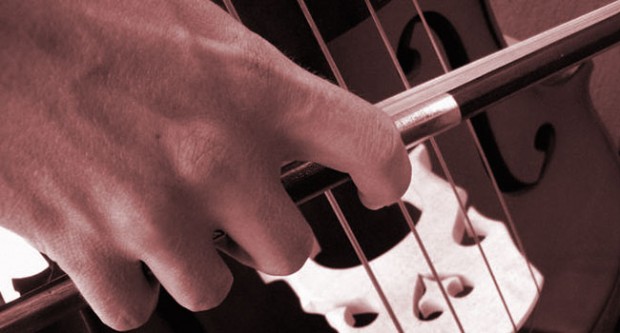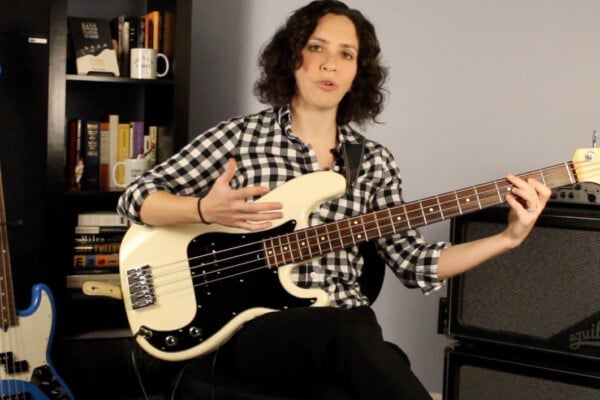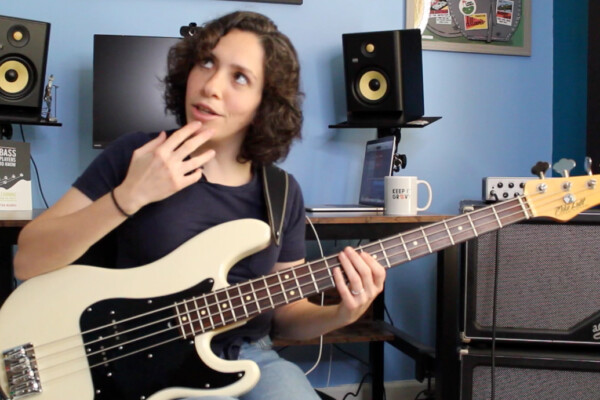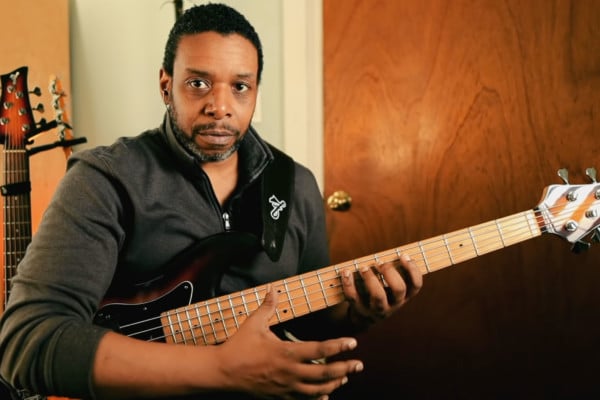Playing Bass… Slow

Every bassist, at some point, wants to learn to play fast. This is a reasonable technical goal to have, of course. Much music demands this sort of technical facility. Furthermore, if we want to be able to truly express ourselves musically, we must have this ability. However, fast playing isn’t everything, in fact it’s only one tool in our box.
There are those who may think that if they learn to play fast passages then slow/lyrical ones will just fall into place, as if by magic. Unfortunately this is not true. From a physical point of view, slow playing requires a different type of muscle control than fast playing. From a mental point of view, it requires a different type of focus. The practical result is, we must train to play slowly.
Here are some things to think about when trying to improve our slow or lyrical playing.
With the left (or fingering) hand:
- We must be loose and able to adjust pitch freely, easily and quickly. The pitch may have to change slightly as the harmony changes. This type of pitch control is one of the beauties of not having frets.
- Our vibrato must be completely under our control, and interesting. We must be very aware of the speed and width of the vibrato, adjusting it as musically desirable. Very often, speed and width should vary throughout the course of a long note.
- We should be very aware of the part of the finger we are using, and how we are using it. We should have control of using the tip or the pad, keeping the finger flat or curved and whether we completely or partially depress the string. Each of these things has an effect on tone. Some notes may require we do more than one thing throughout the course of the note. This requires a great deal of control.
- We should wait until the last moment to drop or depress a finger, especially in legato playing. This helps ensure connection of adjacent notes.
With the right hand/bow:
- We should pizzicato at the last possible moment, so as to ensure length and connection of notes.
- We should pay attention to how much of the finger we put on the string when playing pizzicato and where we pluck the string. A short note with less than excellent tone is unfortunate. A long one can be unbearable.
- With the bow we must practice long tones, in all registers of the bass. We should aim for consistency of sound throughout the length of the bow, and in all registers. Once consistency of sound is achieved, we should aim for control of various dynamics and timbres within a single bow, and in all registers of the bass
- When working on actual music, as opposed to scales or technical exercises, we must learn to replicate our phrasing each time we play the work. Once we can do this, we should aim to change it at our discretion. Such control is paramount to great artistry.
In general:
- We must consistently feel the pulse, and count.
- We absolutely must subdivide. We mustn’t shut off our brains just because a note is long. The slower the music, or the longer the note, the more subdivision matters.
- We must remain intensely focused on timbre, pitch, dynamics and phrasing. Without control of these components our performance will not be satisfying. In slow, or lyrical playing, we cannot hide lack of musical attention behind pyrotechnics. Every detail is important.
- We should remember that every note matters. This is true always, but it is never more apparent than in slow playing.
Dr. Donovan Stokes is on the faculty of Shenandoah University-Conservatory. Visit him online at www.donovanstokes.com and check out the Bass Coalition at www.basscoalition.com.




Let me share with you a very important lesson that was given to me by jazz legend Junior Mance (which was given to him by Ray Charles) – In order to feel right extremely slow tempos, always subdivide the to triplets (3/4 or 6/8). You will begin to notice that the natural flow of that groove will fall right in place as opposed to 8th notes or 16th notes which will usually feel close but not precise. Ray sure knew how to slow cook better then anyone else – https://www.youtube.com/watch?v=UIGoqv8zlRE